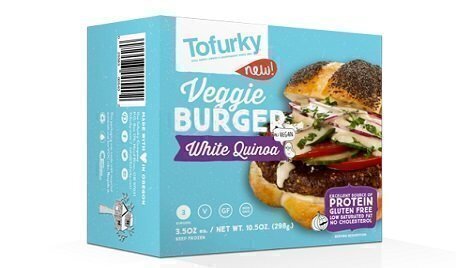A battle is brewing in federal court over a new Missouri law that bans associating plant-based foods such as Tofurky with meat or poultry products.
 The ACLU of Missouri is joining forces with Turtle Island Foods (the owners of Tofurky), the Good Food Institute, and the Animal Defense Fund in the lawsuit in the United States District Court Western District of Missouri, Central Division. The suit claims the law violates the First Amendment and runs afoul of the Constitution’s Dormant Commerce Clause.
The ACLU of Missouri is joining forces with Turtle Island Foods (the owners of Tofurky), the Good Food Institute, and the Animal Defense Fund in the lawsuit in the United States District Court Western District of Missouri, Central Division. The suit claims the law violates the First Amendment and runs afoul of the Constitution’s Dormant Commerce Clause.
Link: Read The Lawsuit
The Missouri state law went into effect on August 28 and it restricts the use of marketing names associated with traditional meat and poultry products to items “derived from harvested production livestock or poultry.” Violations are considered a deceptive practice and could result in a jail term of up to one year and a fine up to $1,000.
For example, Tofurky, the lead plaintiff, saves it could face punishment in Missouri for selling its veggie burgers and DIY chorizo style sausage because the words “burger” and “chorizo” are in the product names.
The Missouri Cattlemen's Association lobbied for the legal change and also pointed out its concerns about “clean meat,” a developing product based on animal-cell cultures that isn’t yet available commercially. “Major companies are investing in developing laboratory grown meat and calling it ‘beef.’ MCA will push for a protection of its nomenclature by protecting the word beef to only include food derived from actual livestock production. This is all about marketing with integrity. MCA will not stand for laboratory grown food or plant based meat alternatives to be marketed as something it’s not,” the group said in 2018 policy statement.
In the lawsuit, the plaintiffs claim the law is targeted at the Missouri Cattlemen’s Association’s competition. “The Statute was introduced and enacted with the intent of commercially harming the plant-based meat and clean meat industries and restricting speech by plant-based meat and clean meat producers to protect the conventional meat industry from competition,” the suit says.
Tofurky also claims it faces the excessive burden of having to rebrand its products for sale at Walmart and other major stories for just the Missouri market. And it claims the law discriminates violates its Article 1 interstate commerce protections.
While the Good Food Institute advocates for clean meat as an alternative food, no clean-meat company has yet signed on to the lawsuit.
As the lawsuit unfolds in Missouri, a national group, the U.S. Cattlemen’s Association, has petitioned the Agriculture Department to enact similar meat-definitions federally using its rule-making powers.
The group also reminded the department that the Food and Drug Administration issued a warning in 2015 to Hampton Creek Foods about its eggless “Just Mayo” product because it showed an egg on its label. The company resolved the issue by changing its label, but it was allowed to keep the word "Mayo" in the product name.
In addition to meat, the fight over food labeling could extend to milk products in the coming year. FDA commissioner Scott Gottlieb said in July his agency could use its rule-making powers to restrict the use of the word “milk” to substances that only come from lactating mammals. Almond and soy milk producers would likely take legal action against the FDA.
Scott Bomboy is editor in chief of the National Constitution Center.







